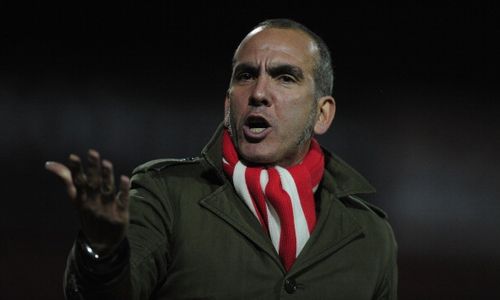
Sunderland’s revolting players and Di Canio’s sacking – What’s the real picture?

Paolo Di Canio was sacked by Sunderland after the club lay at the bottom of the table
In the wake of Paolo Di Canio’s departure from Sunderland, it has emerged some of the senior players complained to the Chief Executive about many of his methods. In particular they were unhappy with the way he had talked to them after the defeat to West Brom on 21st of September.
Di Canio had been at Sunderland for barely six months yet had received criticism for increasing workload at training and criticising his players in public. Basically, he tried to cross a line long since rubbed out from modern football. To publicly question a player’s ability will get you, not the player, the sack.
But the Sunderland board has committed the cardinal sin of management. Never undermine the management structure within your organisation. Anyone who has managed in any walk of life should know if you undermine your manager then this sends a message to those you manage that yours is an organisation where management can be criticised and not respected.
Paolo Di Canio is undoubtedly a complex and intense character which doesn’t naturally lend itself to the ‘arm around the shoulder’ style of management which is needed these days where players are king.
As Robbie Savage recently admitted, the modern player has many tricks in which to get his own way or try and force a move away. Seems odd a player of Savage’s limited ability would need to encourage a club to let him go, but his list of tricks was very revealing and so was his belief there wasn’t anything really wrong with it.
The irony is that it looked in the summer as if clubs had learned to not just bow down to contracted players as Wayne Rooney, Luis Suarez and Gareth Bale looked as if they wouldn’t be allowed to make the moves they wanted. In the end, despite their Chairman’s protestations, Bale did actually have a price Spurs were going to accept, but Rooney and Suarez had to stay put. But just when it looked as if clubs were prepared to wrestle back some power, Sunderland has decided they couldn’t possibly upset their precious commodity and their manager could be replaced any day.
So can you manage by fear these days? Alex Ferguson did.
There are various stories of his dislike for certain players which resulted in them being shipped out. The phrase ‘the hairdryer treatment’ was coined based on his legendary dressing down of players during team-talks. Bigger clubs manage by fear as the player has a fear of being dropped or not making it at the club. That is unless the player thinks there is demand for him elsewhere. So is that really a deterrent anymore?
Di Canio’s former Chairman at Swindon described his style as ‘management by hand-grenade’, and there seems little doubt the Italian likes to test his players and push them to improve. But did they respond? Did they have to? Players such as Wes Brown and John O’Shea are likely to be attractive to other Premiership clubs should Sunderland face relegation, so why should they care what happens to the club?
When Di Canio was at West Ham his manager, Harry Redknapp, would wax lyrical about how his firebrand striker was always the last to leave the training ground, continually working on his game. He clearly expected the same level of commitment from his players. There is no doubt he had a strong work-ethic but did he find it difficult to deal with players who weren’t as driven as him? As a player he had the ability to switch off during matches and then immediately switch on again to produce moments of magic. Not every player is capable of that.